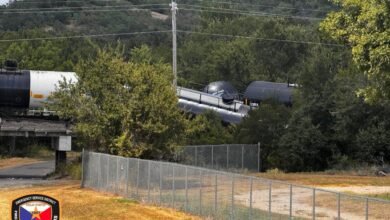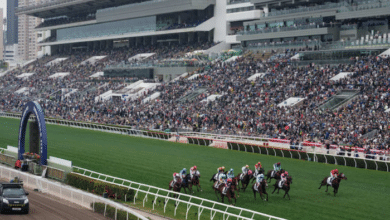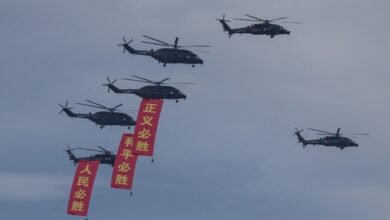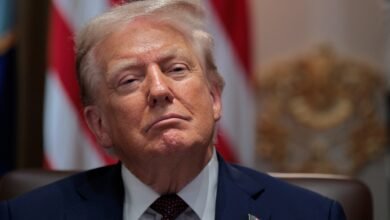Appeals court refuses to lift order preventing Trump from deploying National Guard in Illinois, finding scant evidence of ‘rebellion’
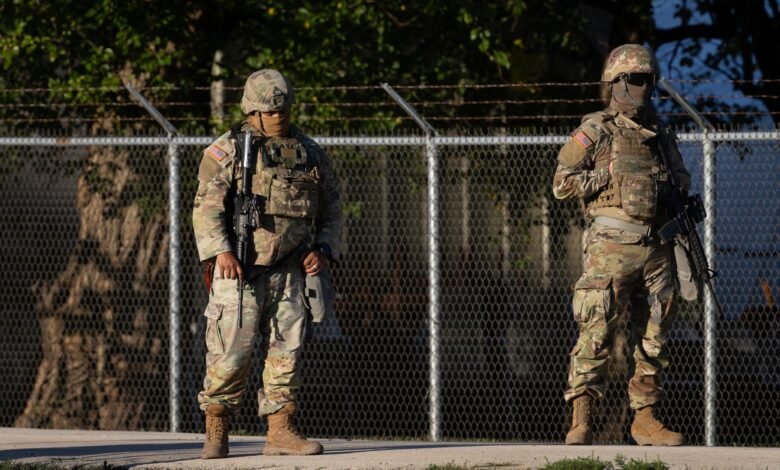
A federal appeals court panel denied a request by the Trump administration to lift a lower court’s order preventing the president from deploying National Guard troops in Illinois.
The three-judge panel of the Seventh Circuit Court of Appeals said the Trump administration’s decision to deploy National Guard troops was a “likely violation” of the 10th Amendment, which reserves certain powers to the states.
It also found that the Trump administration was “unlikely to succeed” in demonstrating that there is a “rebellion” against the authority of the US government or that the president is incapable of carrying out the law with regular forces.
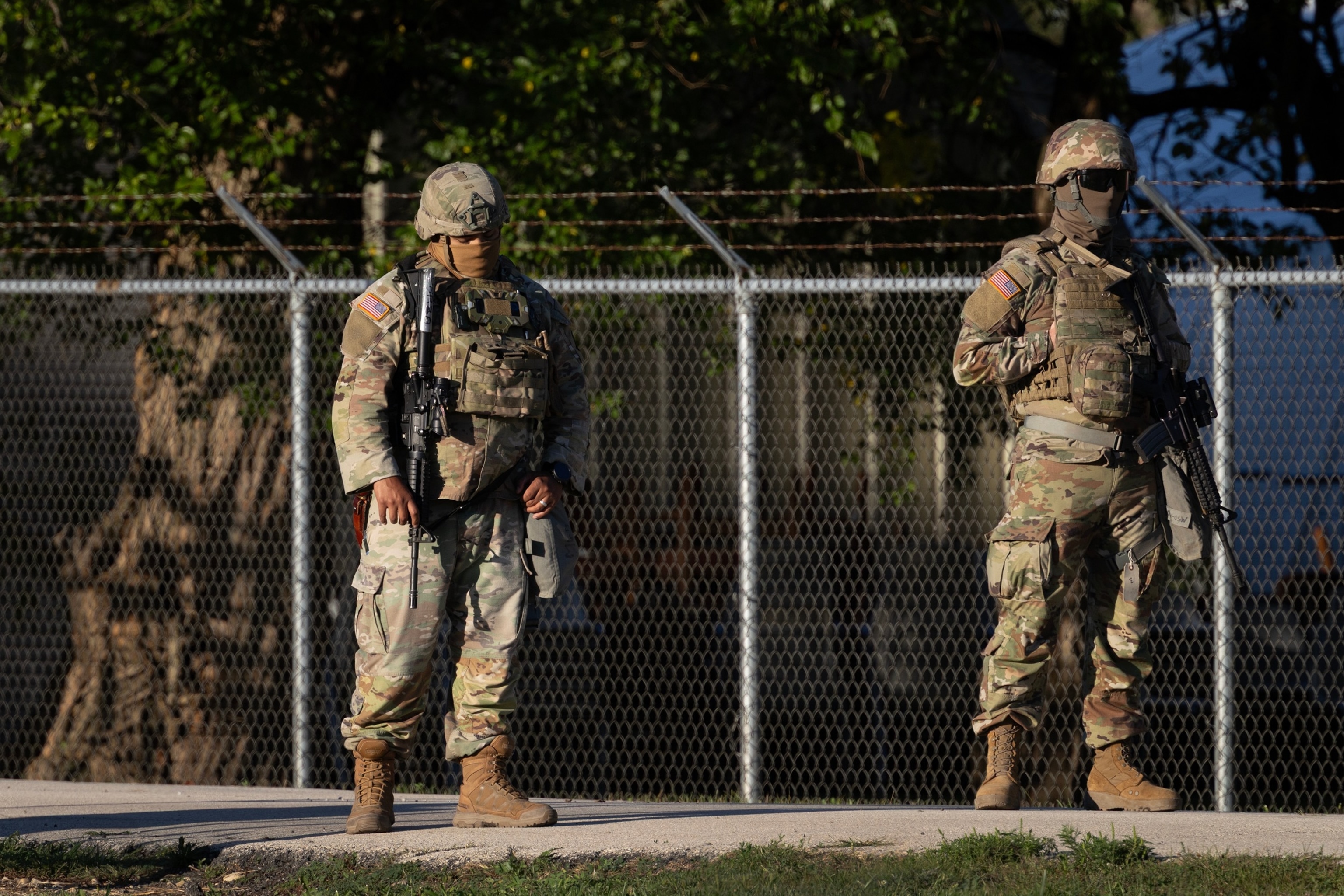
Members of the Texas National Guard stand guard at an Army Reserve training center Oct. 7, 2025 in Elwood, Illinois. The Trump administration has been threatening for more than a month to send the guard to Illinois to address Chicago’s crime problem and support ICE and CBP during Operation Midway Blitz. Illinois Governor JB Pritzker has openly expressed his opposition to the measure, accusing the president of using the guards as political pawns.
Scott Olson/Getty Images
The panel’s decision maintains the status quo in Illinois.
Over the weekend, the appeals court allowed the federal government to maintain control of Guard troops, but The blockade of the Trump administration continued — imposed by a trial judge — to deploy federalized guards anywhere within Illinois.
The temporary restraining order blocking the Guard’s deployment remains in effect until October 23. U.S. District Judge April has scheduled a hearing for Oct. 22 to determine whether the temporary order should be extended.
As of last week, there were about 200 federalized National Guard troops from Texas and 14 from California currently in Illinois, according to a statement from a U.S. Army official. Another 300 Illinois Guardsmen have been mobilized by the president despite the objections of Governor JB Pritzker.
President Donald Trump has said Civil Guard troops are needed to prevent crime in Chicago, which he described as a “war zone.”
Additionally, the Trump administration has said troops are needed to protect federal immigration facilities, which have been the scene of clashes between protesters and federal immigration agents as the administration steps up its immigration enforcement.
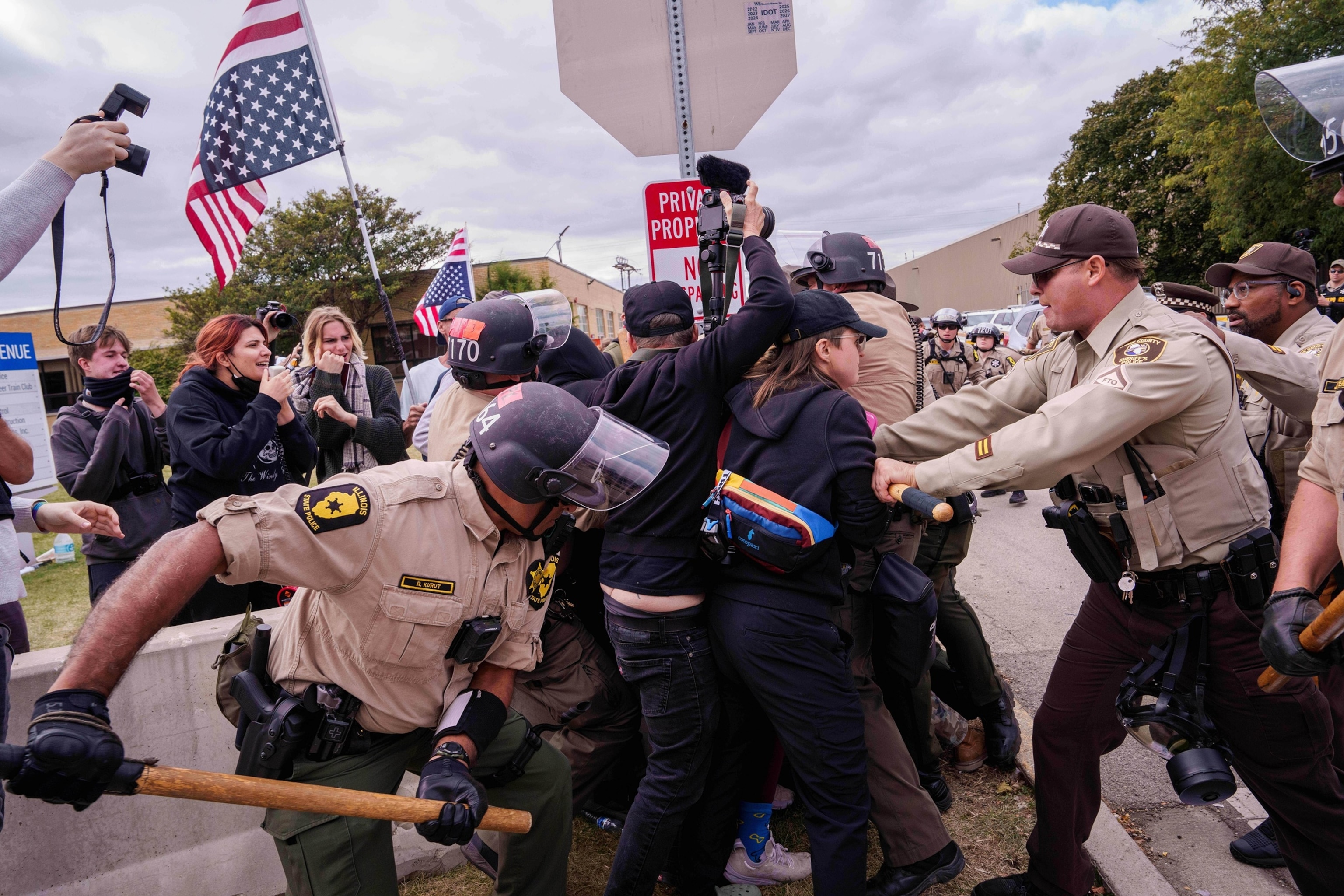
FILE – Illinois State Police and Cooks County Sheriff’s deputies intervene to arrest protesters outside the U.S. Immigration and Customs Enforcement facility in Broadview, Illinois, Saturday, Oct. 11, 2025.
Adam Gray/AP
The appeals court panel said there was little evidence that the protests in Chicago amounted to a rebellion.
“Political opposition is not rebellion,” the judges wrote in their decision.
“[W]”We do not see sufficient evidence of a rebellion or danger of rebellion in Illinois,” the justices wrote later in their decision. “The vigorous, sustained, and occasionally violent actions of protesters protesting the federal government’s immigration policies and actions do not, without more, give rise to a danger of rebellion against government authority.”
Additionally, the justices said there was “insufficient evidence that protest activity in Illinois has significantly impeded the ability of federal officials to enforce federal immigration laws.”
While an immigration center in the Chicago suburb of Broadview has been the site of regular protests, it has remained open and the protests “have been quickly contained by local, state and federal authorities,” the justices wrote in the decision.
“At the same time, immigrant arrests and deportations have advanced rapidly in Illinois over the past year, and the administration has been trumpeting the success of its current efforts to enforce immigration laws in the Chicago area,” the justices wrote. “Therefore, the administration is unlikely to succeed with this argument.”


